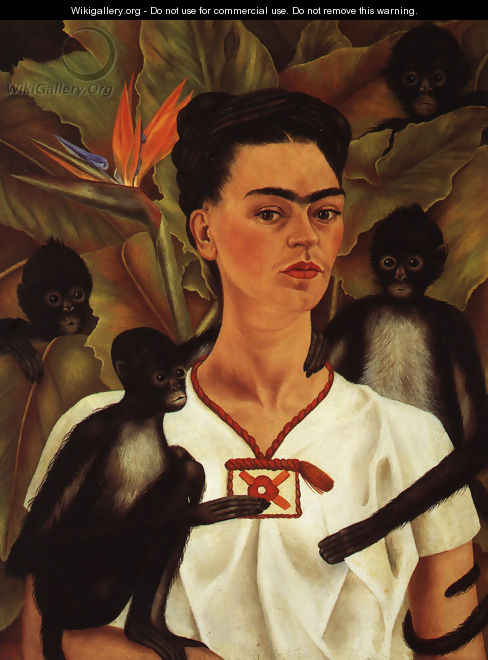 These are definitely going on the holiday shopping list:
These are definitely going on the holiday shopping list:
Hispanic Dolls Cash in on Cross-cultural Appeal
October 4, 2006
Jaclyn Giovis
FORT LAUDERDALE, Fla. – Smiling from behind their rounded spectacles, Abuelito Pancho and Abuelita Rosa sing Spanish lullabies that stir warm childhood memories for many Hispanics – and tug at their purse strings. The silver-haired grandparent dolls are the inspiration of three working moms from Miami who set out to preserve Hispanic culture for future generations.
They ended up on the toy shelves of major retail stores, including Toys “R” Us and Target. Last month, Wal-Mart, the world’s largest retailer, announced it would carry the dolls at more than 330 stores. Dressed in a guayabera shirt and traditional house robe known as a bata de casa, the Baby Abuelita dolls appeal to an increasingly powerful but underserved consumer group, experts say. Since 2000, Hispanic buying power has increased from $489 billion to about $800 billion, growing about twice as fast as that of non-Hispanics. By next year, Hispanics for the first time are expected to out-spend any other U.S. minority group, according to a report released last month by the Selig Center for Economic Growth at the University of Georgia.
As a result, Baby Abuelita and hundreds of other Spanish-speaking and bilingual toys are positioned to cash in on the nation’s shifting demographics. “My first thought when I saw them was, `How come nobody ever thought of this before?'” said Anabel Lewis. Born in Argentina, Lewis often travels from South Florida to Buenos Aires to visit family, and she always takes gifts. Abuelito Pancho, she says, was a rare but perfect find for her youngest nephew, 2-year-old Matias. “He started laughing and looking around,” Lewis said.
“It was very, very nice.” The Target store in Greenacres, Fla., began selling the line of dolls in the spring, and they’ve been a hit, said Maricele Elliott, the store’s toy department manager. “We have a lot of people who speak primarily Spanish in our community, so for our store it makes sense to sell them, and we do sell a lot,” she said, noting only two were in stock last week. With a population of more than 42 million, Hispanics represent the country’s largest and fastest-growing minority group.
In response, major toy companies are making infant and preschool toys bilingual, said Reyne Rice, toy trend specialist for the Toy Industry Association. “It gives them the opportunity to sell to a larger market, and it gives them an entree to Spain and Latin America,” she said. Popular animated heroine Dora the Explorer, a 7-year-old Hispanic adventurer, became a near instant commercial success. She debuted as the star of a Nickelodeon TV series in 2000 and later spun off a host of toys with cross-cultural appeal.
Now Dora is the No. 1 licensed property for preschoolers. She has plenty of company: Scholastic Entertainment’s Maya and Miguel characters are growing favorites who have inspired everything from miniature play sets to party decorations. For the trendy American Girl doll series, a top seller in 2005 was Marisol, a Mexican-American. There’s also a popular Elmo toy that sings Sesame Street’s theme song, “Sunny Day,” in Spanish and English.
South Florida, home to more than 2 million Hispanics, is an obvious launching pad for new Hispanic-themed products and bilingual toys. Play Along of Deerfield Beach, which has licensing agreements for Care Bears, Cabbage Patch Kids and other toy brands, is rolling out two new Care Bears this fall – Amigo Bear and Tele-Friend Amigo Bear. Amigo Bear sings only in Spanish and will be sold in markets with a high concentration of Hispanics. Tele-Friend Amigo Bear speaks both Spanish and English and will be marketed nationwide. “We expect (the launch) to be very successful because it’s not just about the language,” said Susan Evans, vice president of marketing for Play Along.
“It’s about caring and sharing and that’s universal.” Baby Abuelita clearly targets Hispanic consumers. But the founders – Hilda Argilagos-Jimenez, Carol Fenster and Laura Santamaria – say the dolls transcend geographic borders. Abuelito Pancho and Abuelita Rosa sing pan-American lullabies such as Los pollitos dicen (“The baby chickens say”) and Arroz con leche, (“Rice with milk”) which date back several generations and run the risk of being forgotten by young Hispanics. They also are modeled after important figures in many Hispanic families – grandparents. “Toys that have an emotional appeal for the parents and animated play appeal for the kids can be a great combination,” said Felippe Korzenny, director of the Florida State University Center for Hispanic Marketing Communication.
Hispanics, especially those of younger generations, often want to secure their heritage once they have children, Korzenny said. Toys such as the Baby Abuelita dolls, he said, are seen as a fun way to reinforce the parents’ cultural teachings. Baby Abuelita founder Argilagos-Jimenez, a Cuban-American mother of two daughters, says early memories of her grandparents triggered her interest in preserving the Spanish songs. “The only way I would eat my lunch in the high chair was when my grandparents were singing to me,” she said. But once Argilagos-Jimenez tried to write down the nursery rhymes to sing to her daughters, there were parts she couldn’t remember.
Concerned that a significant slice of Hispanic culture could be lost, in 2004 she partnered with Fenster, a psychotherapist, and Cuban native Laura Santamaria, an international business attorney. Argilagos-Jimenez offered the songs, Fenster created the doll concept, and Santamaria helped the group develop a business plan for the venture. They introduced the Baby Abuelita prototype dolls in May of 2005 and by the end of the year sold a total of 3,000. This year, Fenster said they expect to sell close to 60,000. In addition to Abuelita Rosa and Abuelito Pancho, which retail for $24.99, the line also includes a granddaughter called Baby Andrea, who also sings Spanish lullabies.
The women are planning to release a series of Baby Abuelita musical books in November, and are negotiating with a TV network to develop a children’s program around the Baby Abuelita family. While the group has tapped into a profitable niche, Korzenny and others say non-Hispanics may not embrace toys such as the Baby Abuelita dolls because they are too culture specific. But that’s exactly what drew Mike Barron to buy Abuelito Pancho for his nephew Willie’s second birthday. Willie’s parents, who are of Guatemalan and Cuban descent, are teaching him both Spanish and English. “They’re just trying to keep his cultural identity intact,” Barron said.
Source: (c) 2006 South Florida Sun-Sentinel.






the choice of the Roles immediately replica watchespost its physical evaluation by their watchmaking team. What’s more, in case of a non-agreement on price or change of decision,rolex replica authentic auctioneers will also return the timepiece to you at their cost. The final verdict should always lie with you since it is, after all, your most desired first Rolex watch!
jimmy choo shoes
new york knicks jersey
ray bans
ray bans
nike blazer pas cher
skechers outlet
ralph lauren
browns jerseys
nba jerseys
michael kors handbags
hxy4.17
coach outlet clearance
polo ralph lauren
michael kors
polo outlet stores
ray ban sunglasses
hollister
thomas sabo
oakley sunglasses wholesale
true religion jeans
polo ralph lauren outlet
kate spade handbags
fitflops
pandora outlet
michael kors handbags
hermes handbags
oklahoma city thunder jerseys
adidas yeezy
cheap jordans
longchamp uk
pandora outlet
0418shizhong